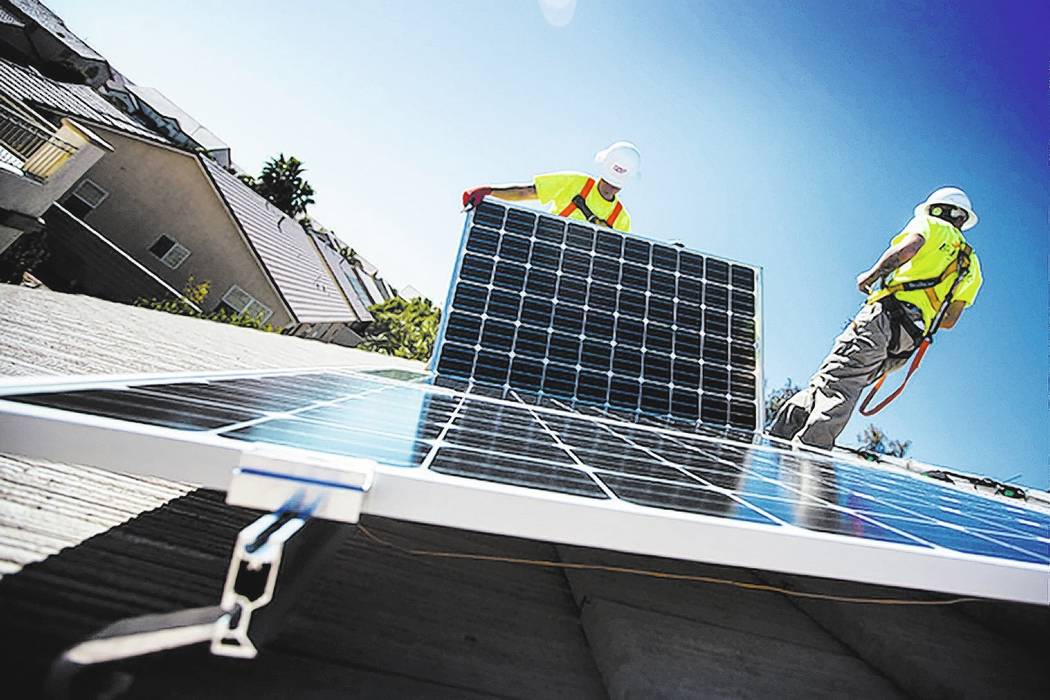EDITORIAL: Legislature’s decision to prop up the Nevada solar industry has consequences
Self-styled consumer advocates cried foul this week when NV Energy announced it will seek approval from regulators for a service charge increase. But who didn’t see this coming?
The utility this month amended a July rate filing to include a 31 percent hike in a fixed monthly fee paid by residential customers. The charge would increase to $16.76 from $12.75.
“Even without another hike, NV Energy’s residential customers already pay among the highest fixed charges in the Western region,” said Sara Gersen, an attorney with EarthJustice.
NV Energy countered that the company is simply requesting “to change how costs are allocated amongst different customers due to the implementation of new private solar generation policies enacted in the most recent legislative session.”
In other words, the move reflects the economic consequences of propping up the rooftop solar industry.
Recall that state lawmakers earlier this year caved to the solar lobby and reinstated generous payouts to those who install rooftop panels to convert sunlight into electricity. As a result, NV Energy will be forced to buy back at virtually the full retail cost the excess power generated by those with rooftop solar.
That’s called “net metering.” Utilities don’t normally pay retail rates to purchase power. They pay lower wholesale rates. But without the retail rate subsidy — along with a 30 percent federal tax credit — solar power systems don’t pencil out at this point as a prudent financial investment.
That became abundantly clear when the Public Utilities Commission in late 2015 lowered the price that solar panel customers received for their excess power. Arguing that the higher rates paid to panel owners unfairly burdened the rest of the state’s electricity users, the commission revamped the regulations to ensure rooftop solar clients would be reimbursed at the more realistic wholesale rate.
The industry promptly collapsed in Nevada.
Two years later, however, rooftop panel owners and companies such as Solar City descended on Carson City during the 2017 session to demand favorable legislation. In economic terms, it’s known as “rent-seeking” — loosely defined as the manipulation of public policy as a means of increasing profits. Not wanting to appear unfashionably anti-green, the Legislature and governor delivered. NV Energy, hoping to minimize potential wrath from environmentalists, was publicly “neutral” on the issue.
In the end, however, forcing the utility to pay higher costs for surplus energy generated by rooftop solar users means the company has to make up the difference elsewhere.
Now we know where.




























